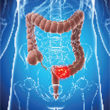Benefits of Vitamin-D, Omega-3 Fatty Acids, and Exercise in Disease Prevention Remain Unclear
A recent study published in the Journal of the American Medical Association (JAMA) tested whether vitamin D3, omega-3 supplements, or a strength training exercise program alone or in combination improved six health outcomes among study participants.
A randomized trial of 2,157 adults aged 70 or older who had no major health events in the five previous years and also had good mobility and cognitive status were randomly assigned to three years of intervention in one of eight groups designed to target all possible permutations of the study components:
| Exercise | Vitamin D 3 | Omega-3 |
| yes | no | no |
| yes | yes | no |
| yes | no | yes |
| yes | yes | yes |
| no | yes | no |
| no | yes | yes |
| no | no | yes |
| no | no | no |
After 3 years, 88% of the participants completed the study; surprisingly, there were no statistically significant benefits of any intervention, either individually or in combination.
Also, among adults aged 70 years or older without major comorbidities, treatment with vitamin D3, omega-3, or a strength-training exercise program did not result in statistically significant differences in blood pressure, non-vertebral fractures, physical performance, infection rates, or cognitive function.
The “bottom line” is that, although it may seem counter-intuitive to question the benefits of exercise and vitamin D3 supplementation (there is already evidence against omega-3 supplements – see previous Quest articles on www.drcatalona.com), the findings of this prospective, randomized clinical trial (prospective randomized trials are considered to provide the highest level of evidence) failed to support the effectiveness of these interventions in this study population during the time interval of testing.
Cautionary Note from Dr. Catalona: This does not mean you should stop taking Vitamin D3 supplements as this study has limited follow-up. Other studies with greater participants and more follow up may provide more information and different outcomes.
. 2020 Nov 10;324(18):1855-1868.
doi: 10.1001/jama.2020.16909.





















